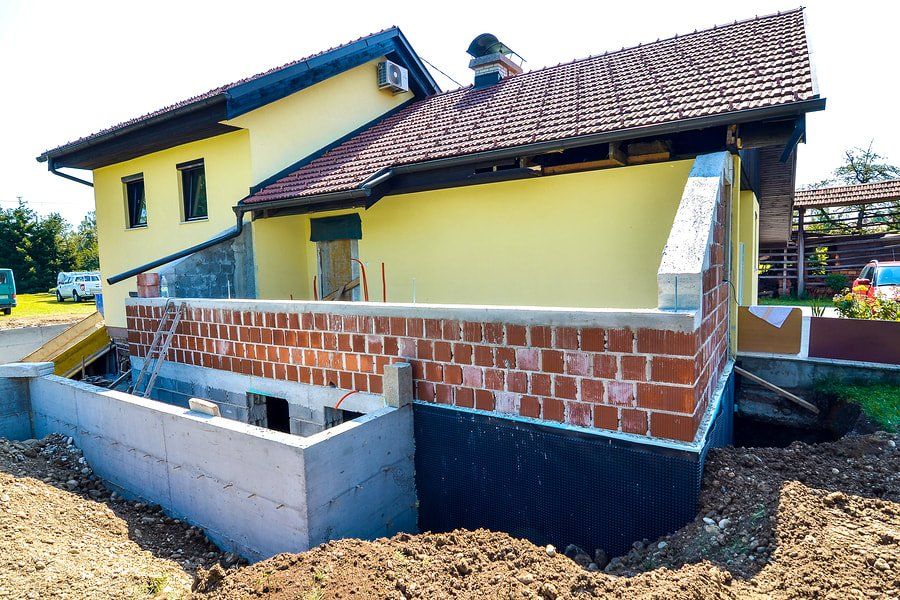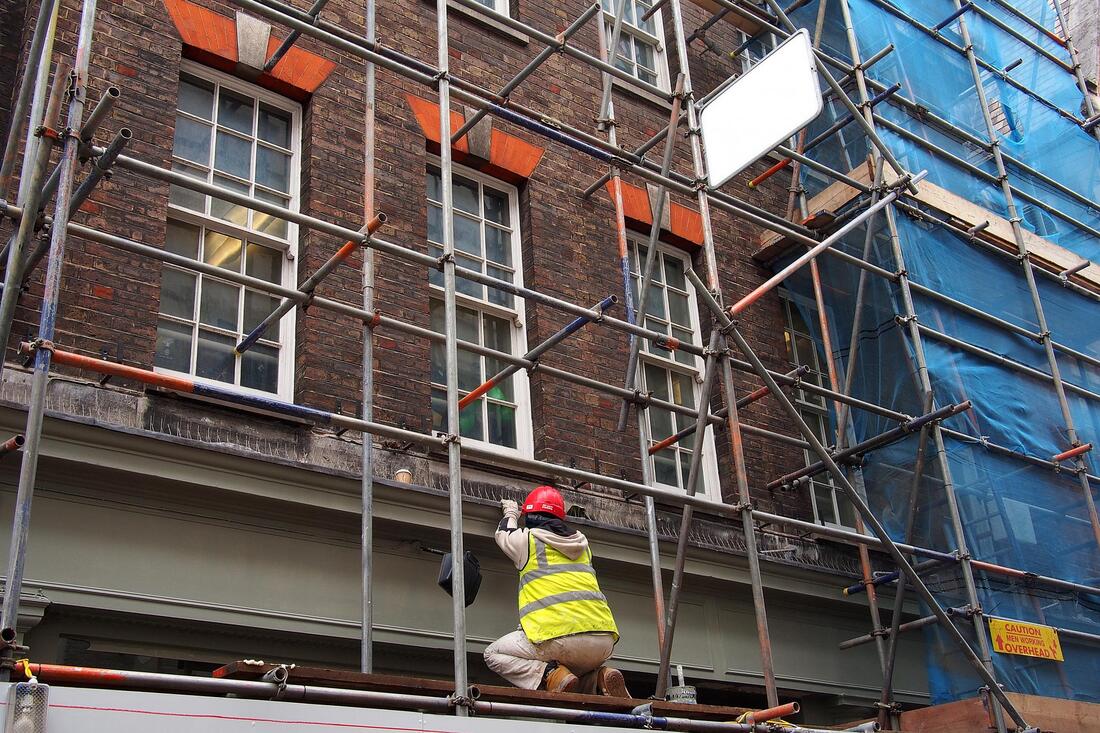Protect Your Home: The Ultimate Guide to Basement Waterproofing
Discover the Essential Steps to Safeguard Your Basement from Water Damage and Leaks
Water damage is one of the most common and costly problems homeowners face, particularly when it affects the basement. A wet basement can lead to a host of issues, including mold growth, structural damage, and the deterioration of your home's foundation. To prevent these problems and protect your property, basement waterproofing is essential. In this comprehensive guide, we'll cover everything you need to know about basement waterproofing, from identifying potential issues to the various solutions available, including basement sealing and waterproofing, foundation repair, and more.

Understanding Basement Waterproofing
Basement waterproofing involves methods and materials used to prevent water from penetrating the basement of a building. Effective waterproofing can involve both interior and exterior measures designed to divert water away from your home's foundation and prevent it from entering your basement. Let's dive deeper into the critical aspects of basement waterproofing and the steps you can take to ensure your basement remains dry and safe.
Why Is Basement Waterproofing Important?
Water in the basement is more than just an inconvenience; it can lead to serious structural problems and health risks. Here are some reasons why basement waterproofing is crucial:
Prevents Structural Damage: Water can weaken the foundation of your home over time, leading to cracks and other structural issues that can be costly to repair. Foundation repair and foundation waterproofing are vital in maintaining the integrity of your home.
Protects Against Mold and Mildew:
Damp environments are ideal breeding grounds for mold and mildew, which can cause various health problems, including respiratory issues and allergies. Basement waterproofing helps keep your basement dry and mold-free.
Reduces Maintenance Costs:
By preventing water damage, you can avoid expensive repairs in the future. Water damage repair can be quite costly, so taking proactive steps with basement sealing and waterproofing can save you money in the long run.
Increases Property Value:
A dry, well-maintained basement can increase the value of your home. Potential buyers are more likely to invest in a property that has been well-cared for and protected against water damage.
Common Causes of Basement Water Problems
Understanding the causes of basement water problems is the first step in protecting your home. Here are some common issues that can lead to a wet basement:
Poor Drainage: Water pooling around your foundation due to poor drainage can seep into your basement. Ensuring proper grading and installing gutters and downspouts are essential steps in preventing this issue.
Cracks in the Foundation: Cracks in your foundation walls or floor can allow water to enter your basement.
Foundation repair
and foundation sealing can address these cracks and prevent further water damage.
Hydrostatic Pressure: Water pressure can build up in the soil around your home, forcing water through any cracks or openings in your foundation. Foundation waterproofing helps to counteract this pressure and keep water out.
Faulty Window Wells:
If your basement windows are not properly sealed or have inadequate drainage, water can enter through the window wells. Installing proper window well covers and drainage systems can help prevent this problem.
Steps to Waterproof Your Basement
Now that we understand the importance of basement waterproofing and the common causes of water problems, let's explore the steps you can take to protect your basement:
1. Inspect Your Basement and Foundation
Before starting any basement waterproofing project, thoroughly inspect your basement and foundation for signs of water damage, such as cracks, mold, mildew, and damp spots. Look for areas where water might be entering your basement, including around windows, doors, and the foundation walls and floor.
2. Fix Basement Leak Issues
If you notice any leaks or cracks, address them immediately. Fix basement leak problems by sealing cracks with waterproofing sealants or epoxy injections. For more significant issues, consider hiring a professional for foundation repair or foundation waterproofing near me services.
3. Improve Exterior Drainage
Ensuring proper exterior drainage is crucial in preventing water from entering your basement. Here are some steps to take:
- Grade the Landscape: Make sure the ground slopes away from your home's foundation to direct water away.
- Install Gutters and Downspouts: Gutters and downspouts should be installed to channel water away from your home. Ensure they are clean and in good condition.
- Extend Downspouts: Downspouts should extend at least 5 to 10 feet away from your home's foundation to prevent water from pooling near the basement.
4. Seal Your Basement
Basement sealing is a crucial part of the waterproofing process. Apply a high-quality waterproof sealant to the walls and floor of your basement to create a barrier that prevents water from seeping in. For best results, consider hiring a professional to ensure the job is done correctly.
5. Install a Sump Pump
A sump pump is an essential component of any basement waterproofing system. It helps remove water that accumulates in a sump basin, usually located in the basement's lowest part. In areas prone to flooding, a sump pump can be a lifesaver by preventing water from rising to the basement floor.
6. Consider Exterior Waterproofing
Exterior foundation waterproofing involves applying a waterproof barrier to the outside of your foundation walls. This method is highly effective at keeping water out and is often used in conjunction with interior waterproofing measures. Exterior waterproofing usually requires excavation around the foundation, so it is best performed by a professional.
7. Maintain Your Waterproofing System
Regular maintenance is essential to ensure your basement waterproofing system continues to function correctly. Here are some tips for maintaining your waterproofing system:
- Inspect for Cracks: Regularly check your foundation walls and basement floor for new cracks and address them promptly.
- Clean Gutters and Downspouts: Keep gutters and downspouts clean and free of debris to ensure proper water flow away from your home.
- Test Your Sump Pump: Periodically test your sump pump to ensure it is working correctly. Consider installing a battery backup system in case of power outages.
Additional Waterproofing Solutions
Depending on your specific situation, you may need additional waterproofing solutions, such as:
Crawl Space Repair:
If your home has a crawl space, waterproofing this area is just as important as waterproofing your basement. Moisture in the crawl space can lead to mold, mildew, and wood rot, which can affect the structural integrity of your home.
Foundation Repair Near Me: If you're dealing with severe foundation issues, consider hiring a
local professional who specializes in foundation repair and foundation waterproofing. They can assess the damage and recommend the best course of action.
Basement Waterproofing Near Me:
Hiring a local basement waterproofing contractor can ensure the job is done right. They have the expertise and equipment necessary to address any water issues in your basement effectively.
How to Choose a Waterproofing Contractor
If you're considering hiring a professional for basement waterproofing near me, it's important to choose a contractor who is experienced and reputable. Here are some tips to help you select the right contractor:
Check Credentials:
Make sure the contractor is licensed, insured, and has a good reputation in the industry.
Ask for References: Ask for references from previous clients to get an idea of the quality of work you can expect.
Get Multiple Quotes: Obtain quotes from several contractors to compare prices and services. Be wary of quotes that seem too good to be true; they may be cutting corners or using subpar materials.
Read Reviews: Look for online reviews and ratings to get a sense of the contractor's reputation and customer satisfaction.
The Cost of Basement Waterproofing
The cost of basement waterproofing can vary widely depending on the extent of the work needed and the materials used. Here's a rough breakdown of potential costs:
Foundation Repair Cost:
Minor repairs, such as sealing small cracks, can cost a few hundred dollars. However, more extensive foundation repair can range from $1,000 to $10,000 or more.
Basement Sealing:
The cost of basement sealing typically ranges from $500 to $3,000, depending on the size of the basement and the type of sealant used.
Sump Pump Installation:
Installing a sump pump can cost between $500 and $1,500, depending on the pump's quality and the complexity of the installation.
Exterior Waterproofing: Exterior foundation waterproofing is usually the most expensive option, with costs ranging from $5,000 to $15,000 or more, depending on the excavation required and the materials used.
Conclusion
Basement waterproofing is an essential investment in the long-term health and safety of your home. By understanding the causes of basement water problems and taking proactive steps to prevent them, you can protect your property from costly water damage and maintain its value. Whether you're dealing with minor leaks or major foundation issues, there are solutions available to meet your needs. Don't wait until water damage has already occurred; take action today to safeguard your home and enjoy peace of mind knowing your basement is protected.
Remember, it's always best to consult with a professional if you're unsure about any aspect of basement waterproofing. A qualified contractor can assess your situation and recommend the best course of action to keep your home dry and safe.



